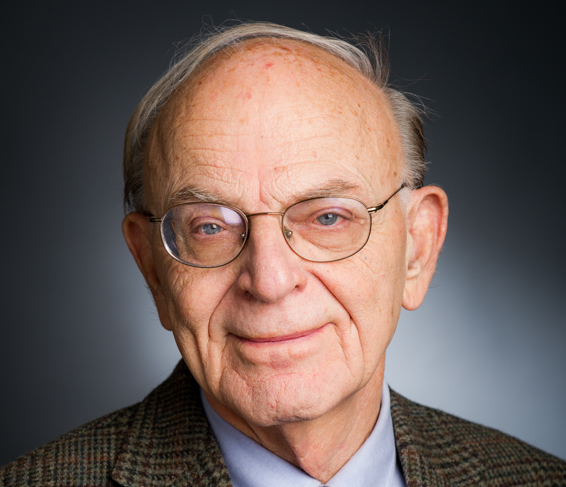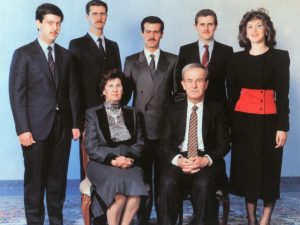For Harvard Medical School students, the name of the renowned cancer researcher George P. Canellos is familiar, as the school – where he taught for decades (as the William Rosenberg Professor of Medicine) – accorded him the rare honour of establishing a Chair in his name.

American oncologist and cancer researcher George P. Canellos.
The reason for that is simple. For over half a century, Canellos played a central role in oncological research in America.
In the 1960s he developed, with associate Vincent T. DeVita, a successful, groundbreaking combination chemotherapy, one of the first, for breast cancer.
The two also collaborated in developing the regimen for the treatment of Hodgkin’s Lymphoma.
Through his extensive and multi-faceted cancer research, Canellos developed many practice-changing clinical trials of cancer therapies.
From 1975 to 1995, he served as chief of the Dana-Farber Cancer Institute’s Division of Medical Oncology, and additionaly as medical director for network development for Dana-Farber/Partners CancerCare
He also served as Editor-in-Chief of the prestigious Journal of Clinical Oncology from 1988 to 2001.
In an interview with To Vima, Canellos explains his scientific course and accomplishments, why science has not yet been able to find a cure for cancer overall, the role of Big Pharma in developing treatments, and the great pride he takes his Greek heritage.
As a pioneer in modern cancer research, what do you recall as your most important discoveries and accomplishments in over half a century?
The last 50 years have seen much progress in cancer research and treatment. In response to your question, my own efforts resulted in two accomplishments during my tenure at the National Cancer Institute that includes studies which resulted in the first demonstration that combining chemotherapy drugs could cure a disease known now as diffuse large cell lymphoma. I also developed a combination regimen of chemotherapy that resulted in a high response rate in advanced breast cancer. When that regimen was applied to early breast cancer in patients at risk of having a spread of the disease, it demonstrated that the incidence of spread was decreased and thus lead to higher survival. This was done by the Cancer Institute in Milan, Italy where there was a larger population of patients to test the hypothesis of early chemotherapy.
You are one of the very top experts in lymphoma and forms of chronic leukemia. Why did you choose that area and how have the quality of life and life expectancy changed since then? What should people know about diagnosing and treating these cancers?
Lymphoma and chronic leukemia are reasonably common diseases. They were chosen early because the drugs available at that time had activity against the diseases. Some but not all have had their lives prolonged if not cured but not all patients unfortunately. People should know that these diseases can present as swelling of lymph glands under the arms, groin or neck or can present as anemia or abnormal bleeding.
Many people wonder why, despite all the astounding scientific discoveries in countless areas, contemporary science has not been able to find a cure for cancer in general. What is the best answer to that and what would allow it to come sooner?
There is progress but it takes time to accumulate knowledge and to get new treatments tested. There is progress compared to 25 or 50 years ago, but there is more that needs to be done. There is a great deal of research going on in the world. Perhaps more funding and attracting more brilliant minds might accelerate the progress.
What are the virtues and sins of the role of huge pharmaceutical companies in extending life and offering affordable ground-breaking treatments worldwide for cancer patients?
The pharmaceutical industry makes the useful drugs. The process of getting a new drug approved is lengthy and expensive, including the manufacture and testing. Many drugs do not make the grade as being not effective enough or too toxic to humans. New drugs approved for patients are likely to be expensive. In some instances, pharmaceutical firms have helped patients unable to pay and certainly fund research disease trials.
Tell us a bit about the Canellos Chair at the Harvard Medical School and how you hope it can help continue your work.
The Dr. George and Jean Canellos Professorship in Medicine at Harvard Medical School is now active and is currently held by the chief of medical oncology (cancer medicine) at the Dana-Farber Cancer Institute, where I was the first chief of medical oncology. My wife, Jean, has been active in an organization known as the Friends of the Dana-Farber; she is also of Greek descent. The chair is supported by endowments given by several foundations, including the Leventis Foundation and the Niarchos Foundation, as well as many friends and patients of mine and family members who donated to the Professorship.
What role has your Greek heritage had in your life?
My Greek heritage has been a source of pride knowing the contribution of Greek learning through the ages. My parents always urged excellence in academics and supported doing good for mankind and helping people. As we were a minority in the USA, we still were encouraged to excel as best we could so that the Greek spirit and race could be recognized as exceptional.


